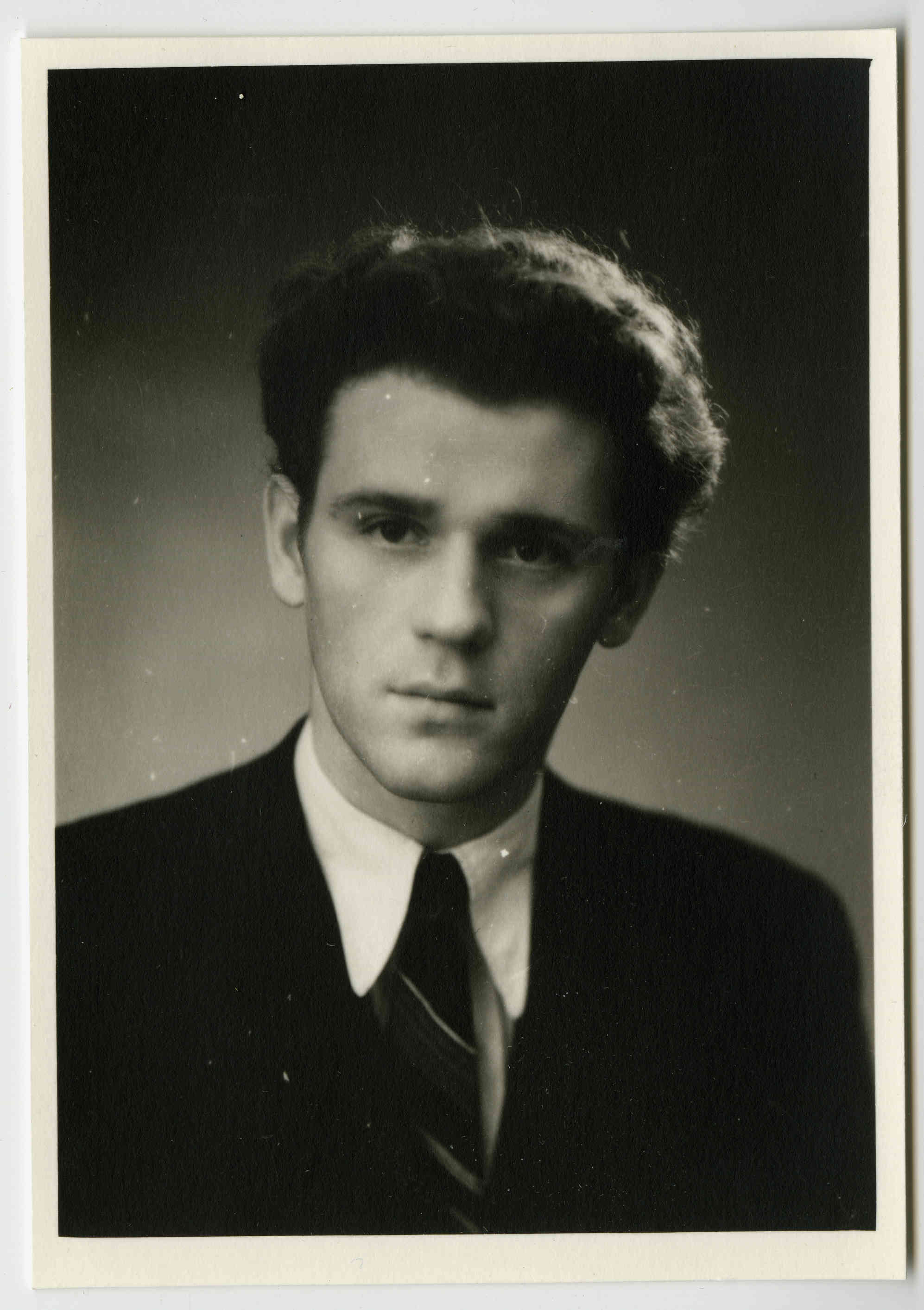
Heino Väli
Heino Väli (11. VIII 1928 – 23. XI 1990) was a children’s author and prose writer.
Väli was born in Tallinn. His father was a casual worker from Saaremaa. The family often moved house. Heino Väli attended several primary schools and from 1943 to 1944 the Kuressaare Gymnasium. He graduated from the Nõmme school of cinema. He worked for several years in Tallinn as a mechanic in a cinema repair workshop and as a cinema technician. After military service, Heino Väli switched to journalism. From 1954 to 1957 he worked in the editorial office of the children’s paper Säde, and thereafter for three years in humorous journalism for Pikker. He also worked as an editor of children’s programmes for Estonian Radio. From 1955 to 1958 Heino Väli was the secretary and chairman of the NAK, or Young Authors’ Associacion, in Tallinn, and later was the chairman of the children’s literature commission of the Writers’ Union.
Heino Väli made his debut in 1957 with a collection of children’s stories, Kui vanaema tukastab (‘While Grandma’s Snoozing’). Most of his work consists of books of prose for children. Of Väli’s later work, two books about the pirate Silver One-eye have remained popular until today (they appeared in 1971 and 1981). The stories bear the stamp of the romance of the sea; alongside the realistic present-day scenes there are plenty of fairy-tale types and situations. For the last 20 years of his life Heino Väli lived on the island of Vilsandi. In the Silver One-eye stories he depicts Vilsandi as a fairyland with highly imaginative place-names.
From 1961 Heino Väli was a freelance writer. He continued writing for children, but he also tried his hand at short story writing: he wrote about revolutionary times – the creation of the kolkhoz collective farms – in the Estonian countryside, about the differing world-views and conflicts among his contemporaries, the new settlers (uusmaasaajad – people who were given land dispossessed from prevous farmers after the Soviet occupation in 1940) and the Forest Brothers (guerrillas fighting against Soviet forces after the World War II). To adults he addressed a pair of stories, influenced by Soviet ideology, about the campaign of the Forest Brothers, Mina, Lauri Pent – künnimees (‘I, Lauri Pent, ploughman’, 1968; 2nd prize winner in the Looming short story competition) and Veri mullal (‘Blood on the Ground’, published 1973, winner of the 1974 Friedebert Tuglas short story prize). These two stories appeared together in 1982 under the same covers under the title Veri mullal, and in which the second story bore the name Mina, Helmuth Ass – põletusohver (‘I, Helmuth Ass, a Burnt Offering’) in the book.
In 1988 Väli won the annual Juhan Smuul literature award for the children’s story Naga (‘The Peg’). Heino Väli’s children’s stories have been translated into Russian, Lithuanian, Armenian, German and other languages.
Heino Väli was the father of the poet Katrin Väli.
L. P. (Translated by C. M.)
Books in Estonian
Stories for children
Kui vanaema tukastab. Tallinn: Eesti Riiklik Kirjastus, 1957, 58 lk.
Kit Kurnähh, kaardiväelane. Tallinn: Eesti Riiklik Kirjastus, 1958, 27 lk.
Rajad soos: seiklusjutt. Tallinn: Eesti Riiklik Kirjastus, 1962, 131 lk.
Kolumbuse maa Kolumbus. Tallinn: Eesti Riiklik Kirjastus, 1963, 208 lk.
Hundikäpp: jutustus. Tallinn: Eesti Riiklik Kirjastus, 1964, 132 lk.
Kuukaraadža lugu. Tallinn: Eesti Raamat, 1966, 88 lk.
Peetrike: jutustus. Tallinn: Eesti Raamat, 1966, 80 lk.
Värb-Värvupoeg Värvuke: jutustus. Tallinn: Eesti Raamat, 1966, 36 lk.
Päevakoer ja peegel ja päevakoer. Tallinn: Eesti Raamat, 1969, 17 lk.
Vapustav Tulikametsa lugu: muinasjutt. Tallinn: Eesti Raamat, 1970, 104 lk.
Silver Ükssilm, Felslandi hirmus mereröövel. Tallinn: Eesti Raamat, 1971, 168 lk.
Hea küll, aga paha ka. Tallinn: Eesti Raamat, 1975, 32 lk.
Kaevulood. Tallinn: Eesti Raamat, 1975. 152 lk.
Väike armas Berbara: jutustus. Tallinn: Eesti Raamat, 1977. 41 lk.
Kuningajutt. Tallinn: Eesti Raamat, 1978. 483 lk.
Muinasjutt kuningapojast ja sinise salliga tüdrukust. Tallinn: Eesti Raamat, 1980. 16 lk.
Silver Ükssilm ja Admirali vanne. Tallinn: Eesti Raamat, 1981. 238 lk.
Teda omaks pidada: kolm juttu. Tallinn: Eesti Raamat, 1986. 79 lk.
Mirjemilaul. Tallinn: Eesti Raamat, 1987. 31 lk.
Naga: jutustus. Tallinn: Eesti Raamat, 1987. 78 lk.
Kiikhobu. Tallinn: Eesti Raamat, 1989. 46 lk.
Paberhaagike: jutustused. Tallinn: Eesti Raamat, 1989. 140 lk.
Short stories
Veri mullal. Tallinn: Eesti Raamat, 1982. 152 lk.
Criticism
Mallega ja Kallega: artiklid ja retsensioonid lastekirjandusest. Tallinn: Eesti Raamat, 1975. 208 lk.



